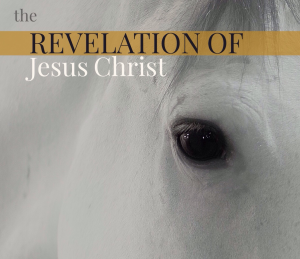Chapter 12 presents an interesting accusation from an interesting set of people, all flowing out of what’s occurred in chapter 11. There, the people complained, then Moses complained because they were complaining. God solves this by providing His Spirit to 70 elders to that they could be capable of helping Moses watch over this group of complainers. Also, a small number of said complainers died after chasing after quail meat that they certainly should have recognized as something they should have left alone. The course of that journey took them from Kibroth-hattaavah (meaning “graves of craving”, a suitable way to remember the foolishness of these folks at this moment) further north to Hazeroth.
At Hazeroth, Moses’ brother and sister speak against him. This poor guy is getting it from all sides. Not only is there a question of his general leadership (see complaining from chapter 11), but now that YHWH has provided His Spirit onto 70 elders, and in light of the fact that there is a High Priest in Israel (ahem, Aaron), there seems to be a contention that Moses just isn’t that special of a dude. But that isn’t how the accusation begins. As it often does, his adversaries, Miriam and Aaron, pick out a scandal.
Moses has married a Cushite woman. The basis of the accusation they are making, or why they care about it, isn’t clear. For starters, Moses’ wife Zipporah was a Medianite. Now, there are places in Scripture that refer to Midian and Cush as if they are the same place (Habakkuk, for example). However, Cush also seems to be a distinct place that is anywhere from modern day Ethiopia into northern Saudi Arabia or Iraq. If the second is the case, it means that Moses married two ladies. So, the accusation could be that he has married someone of African descent, or that he has two wives, or any number of other things. There isn’t enough in the text to confirm what violation they seem to be pointing out.
Ultimately, it doesn’t matter, it wasn’t the purpose anyway. Overall, the core of the matter was to make the case that Moses’ spiritual authority is not unique. God speaks to prophets, the Spirit is on the elders, and High Priest does the direct interaction in the Tent of Meeting. Basically, Moses’ isn’t that big of a deal. Note, certainly, that this is an entirely self-serving accusation intended to elevate both Aaron and Miriam’s sense of power and worth. Miriam is described in Exodus 15 as a prophetess and Aaron is the High Priest. There is always blindness in such an endeavor. God’s Kingdom identifies strength in service, humility, truth, and reliance on God. Anytime you attempt to demonstrate strength in a manner that differs from this, you’re going to look (and be) as silly as these two adults who are trying to make the most of the opportunity and kick their brother while he’s down.
The Lord wants to speak about this accusation that’s been made so he brings Moses and his siblings to the Tent of Meeting. YHWH singles out Aaron and Miriam and makes clear that there are some distinctions to be made here (which he makes in the form of a poem, 11 lines long). For one, God speaks to His prophets but He does so through dreams, visions and signs. But not with Moses, who is faithfully watching over all of God’s estate (His people, primarily). Moses gets to speak with God “mouth to mouth”, or in conversation and not in riddles. And although Moses was only able to see God’s “back” in Exodus 33, he was still able to take in some semblance of a physical presence (whereas everyone else gets the cloud/fire combo). So, obviously, Moses remains a unique individual with a unique role in Israel.
So now YHWH asks Miriam and Aaron why they felt they could accuse Moses in this way without fear? What made them think that they had the right or the perspective to make accusations like this against someone who God has obviously chosen to do this work and has consistently dealt with in a very tangible and personal way? Their sense of self-elevation was entirely misguided and their attempt to degrade a man who is trying to faithfully follow God’s direction is a direct affront to YHWH Himself. We’re told that God is angry with them and leaves their presence.
Upon the cloud leaving, it’s discovered that Miriam has some skin issues (leprous isn’t quite the right thought as we think of modern day leprosy or Hansen’s disease). In either case, this is obviously a result of this most recent set of behavior. Why wasn’t Aaron diseased? For starters, Miriam appears to be the instigator here. Notice that her name is listed first in the opening verse (I know you don’t write with that clear of intention but the Biblical writers certainly did). Also, the “speak against” wording is expressed using verbs that are feminine and singular, meaning it’s associated with a lady and doesn’t seem to include both Miriam and Aaron. Also, it’s possible that cursing Aaron would have put the camp in a real pickle given that it would make their High Priest unclean and thus unable to execute the commands of the office.
Aaron immediately asks Moses to try and allay punishment by confessing their foolishness and the clear sin they have committed. This is a strong reaction, especially coming from the High Priest (although certainly appropriate). Moses, good ol’ Moses, immediately appeals to the Lord, who immediately heals her. Notice, this is something Moses can do that Aaron can’t and/or doesn’t. Moses’ standing as a unique intercessor for the people (a shadow of Jesus to be sure) remains. However, Miriam is still unclean for having had this leprous disease so has to go through the normal procedures of staying outside the camp and having the priests check her condition after a week.
Miriam appears to be still highly thought of as everyone waits for the 7 days to be up before moving on. This also implies that YHWH waits this 7 days as well given that their moving is contingent upon the cloud kicking off the movement. After Miriam is cleared and brought back into the camp they continue travelling north to the wilderness of Paran, drawing nearer enough to the land they have been promised to send folks out to get a gander and see if it is all that YHWH has promised.

